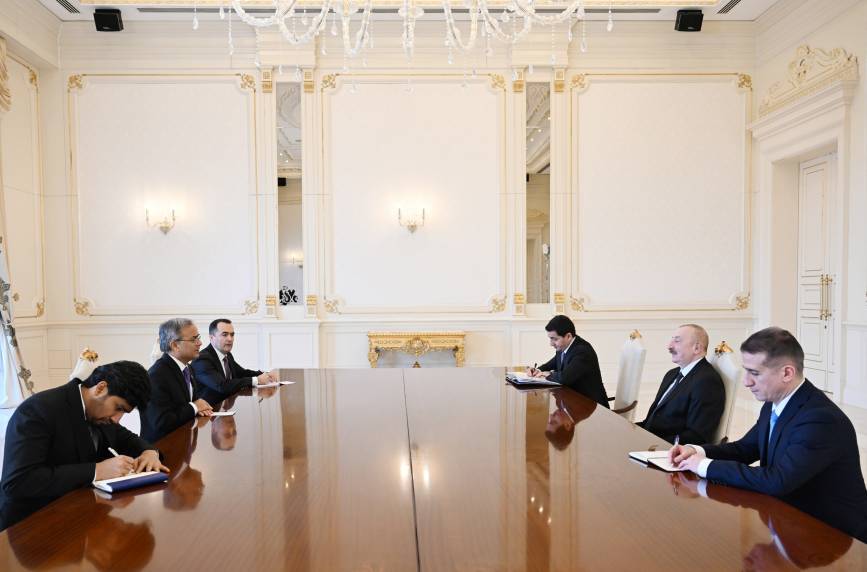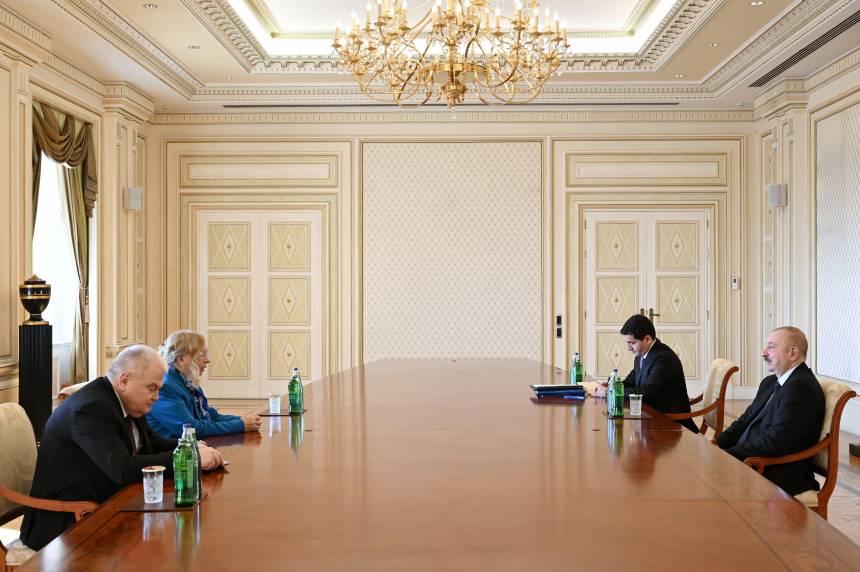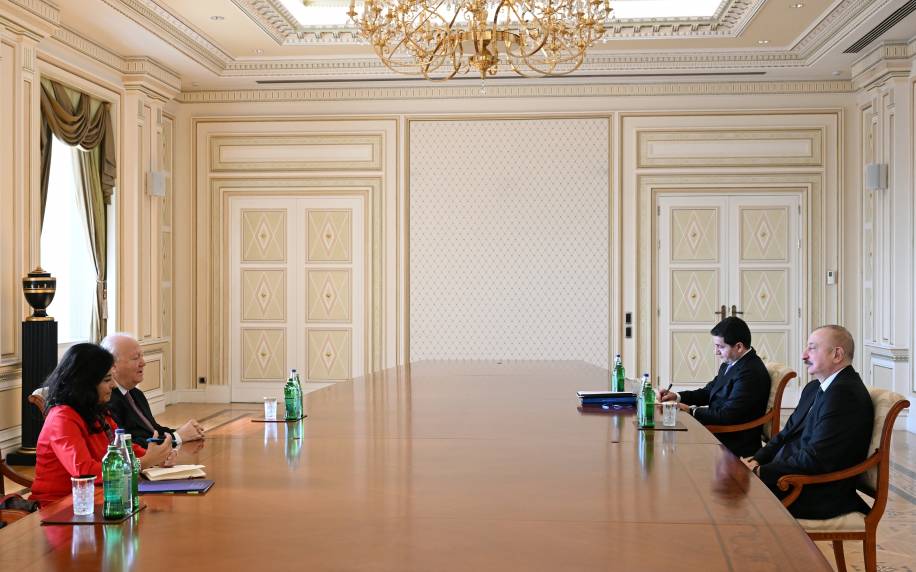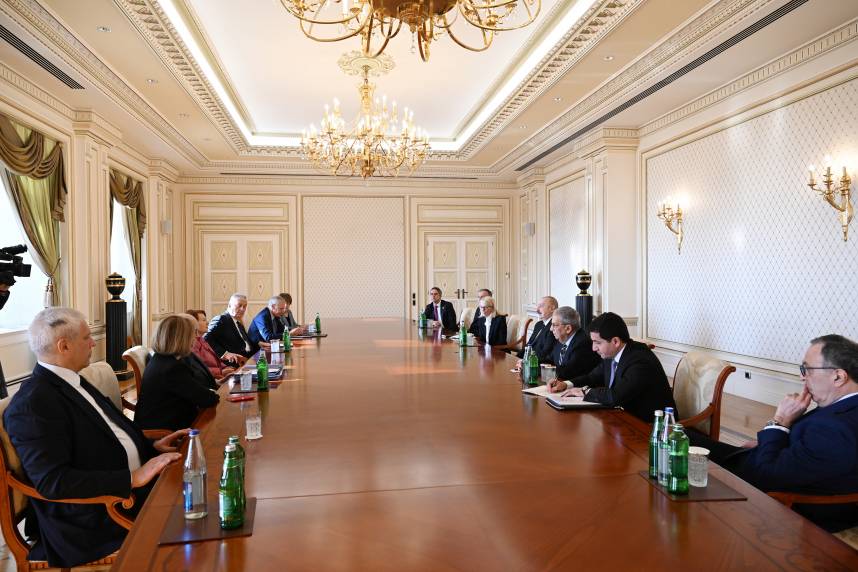18:00

EU Reporter
24 February 2013
The commemoration of Khojaly tragedy – the most atrocious episode of Nagorno-Karabakh conflict - receives a new dimension – this month the Czech parliament voted in support of the condemnation of the massacre of Azerbaijani 613 civilians on night of 25th of February 1992.
Czech Republic is the first member of the EU formulating with the remarkable clarity the position towards Khojaly, confronting the Europeans with this dramatic realities behind the so called ‘frozen conflict’. The Foreign Committee adopted the resolution without any objection.
In spite of multiple formal expressions of opinion, engraved in a number of documents of international institutions, as he UN Resolutions - 822, 853, 874, 884 (1993), UN General Assembly resolution ‘Situation on the occupied territories of Azerbaijan’ (2008), the Resolution of the Parliamentary Assembly of the Council of Europe (PACE), addressing the fact of the ‘occupation of Azerbaijani territories by Armenian military forces’, the EU hasn’t pronounced its position towards the Nagorno-Karabakh conflict yet, neither expressed the opinion on Khojaly.
‘The European Union is striving to speak with one voice, - said to the ‘EU Reporter’ the Ambassador of Azerbaijan to Belgium and Head of the Mission to the EU, Fuad Isgandarov, - and we look with hope into perspective of such a joint opinion on Nagorno-Karabakh conflict, we think it will contribute a great deal in perusing its peaceful solution. We also hope that the EU will act as a global player as it declares, contributing in the resolution of the conflict with the same zeal as in cases of Abkhazia, South Ossetia and Transnistria’.
At the eve of the commemoration of Khojaly massacre the Ambassador is at most constructive in his approach draws analogies, explaining that as in Europe there was ‘a great deal of work’ done to reflect upon the atrocities of the II World war, there should be the same healing process for the Caucasus:
‘We can’t step into a new, better future for our people, without paying justice to those, who perished in the conflicted, - continues Ambassador. – We expect solidarity in paying tributes to the memories of the victims. We wish the rest of the world understands and shares our grief’, - continued Isgandarov
In the framework of the campaign of the XXI commemoration of Khojaly the ensemble of events will take place at the Brussels, including the manifestation of hundreds of Belgium Azeri’s towards the European Institutions at Schuman square.
‘If we talk about gross violations of Human Rights, than depriving human-being of life is the at most serious crime that requires unanimous condemnation, because as a mankind we need not only to declare the universal human rights, but avoid any kind of double standard in its application. This double-standard approach creates erosion of confidence that is so crucial for construction of lasting peace’
Meanwhile the Khojaly tragedy is getting growing attention from different parts of the world: in the US the Senate of New Mexico and Arkansas House of Representatives adopted a resolution condemning the Khojaly massacre as at most barbaric act of war. The recognition of the Khojaly tragedy from the legislators of Texas, New Jersey, Georgia and Maine followed.
Lately the Senate of Islamic Republic of Pakistan adopted a resolution condemning the occupation of the 20% of Azerbaijan territories. National Assembly of Korea expressed its support to the efforts of Azerbaijan to find a peaceful solution of the conflict.
The Khojaly story has one more angle, making it especially significant for contemporary history of Azerbaijan: a special place in it belongs to youth in the ongoing International campaign ‘Justice for Khojaly! Freedom for Kharabakh’ initiated and led globally by Mrs Leyla Aliyeva, General coordinator of Islamic Cooperation Youth Forum. The movement is getting sympathies around the world.
The overwhelming support in recognition of Khojaly as an act of genocide and a crime against humanity received at the 12th session of the Islamic Summit conference – the supreme body of the Organization of Islamic Cooperation (OIC) in Cairo (February 2013) .
In spite of the wounds of the past the attention of Azerbaijanis is focused on the future.
‘Recently the EU got a Peace Nobel Price, - said the Ambassador, commenting on his vision on the perspectives of the region. – Europe made a long way to this award reconstructing itself from the ashes of the II World war, after the atrocities of the Holocaust, after the massive loss of human life. It paid the highest price for this experience to come to a point of the European project as an ultimate piece endeavor”, - said Isgandarov.
“We have started our way for reconstruction and we have to go through the similar process of reflection and evaluation of the past. As we belong to the same European family, even formalizing our ties through the membership in the OSCE, we hope that Europe will play a role. We are looking forward to it!’.

PDF yükləyin
12 mart 2025, 12:50Azərbaycan Respublikası Konstitusiyasının 109-cu maddəsinin 32-ci bəndini rəhbər tutaraq qərara alıram:
1. “Sosial müavinətlərin məbləğinin artırılması haqqında” Azərbaycan Respublikası Prezidentinin 2013-cü il 29 avqust tarixli 973...
12 mart 2025, 12:49PDF yükləyin
12 mart 2025, 12:47Azərbaycan Respublikası Konstitusiyasının 109-cu maddəsinin 3-cü və 32-ci bəndlərini rəhbər tutaraq, “Aviasiya haqqında” Azərbaycan Respublikasının 2023-cü il 22 dekabr tarixli 1058-VIQ nömrəli Qanununun icrası ilə əlaqədar qərara...
12 mart 2025, 12:46


Azərbaycan Respublikası Konstitusiyasının 109-cu maddəsinin 32-ci bəndini rəhbər tutaraq qərara alıram:
Azərbaycan Respublikası Prezidentinin 2020-ci il 12 may tarixli 1017 nömrəli Fərmanı...
11 mart 2025, 16:18Azərbaycan Respublikası Konstitusiyasının 109-cu maddəsinin 32-ci bəndini rəhbər tutaraq, “Mülki aviasiya sahəsində idarəetmənin təkmilləşdirilməsi ilə bağlı bəzi tədbirlər haqqında” Azərbaycan Respublikası Prezidentinin 2025-ci il 21...
11 mart 2025, 16:16Azərbaycan Respublikası Konstitusiyasının 109-cu maddəsinin 19-cu və 32-ci bəndlərini rəhbər tutaraq, “Azərbaycan Respublikasının Şəhərsalma və Tikinti Məcəlləsində, “Texniki təhlükəsizlik haqqında” və “Lisenziyalar və icazələr...
11 mart 2025, 16:14Azərbaycan Respublikasının Milli Məclisi Azərbaycan Respublikası Konstitusiyasının 94-cü maddəsinin I hissəsinin 1-ci, 11-ci, 13-cü və 20-ci bəndlərini rəhbər tutaraq qərara alır:
Maddə 1. Azərbaycan Respublikasının Şəhərsalma və Tikinti...
11 mart 2025, 16:12